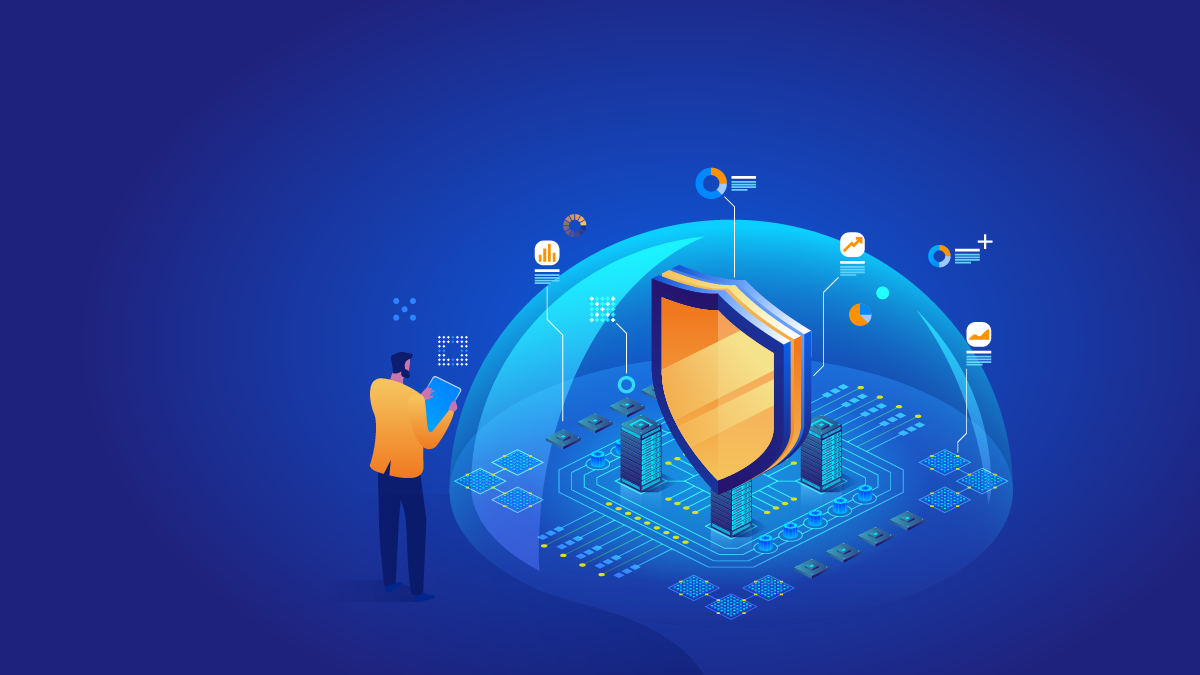Data Security versus System Security- Do you know the difference?

If you don’t have appropriate security systems in place, just a single employee can unwittingly undermine your best efforts in cybersecurity.
A comprehensive security system is vital to derail a potential attack vector, the path of a cyberattack. Good security control starts with understanding data security versus system security and how both help address security threats.
What Is Data Security?
Cybersecurity involves data protection, such as data privacy, integrity, and access control, according to the International Organization for Standardization (ISO).
Examples of Data Security
The international standard for information security, ISO 27001, lists fourteen domains to consider in the protection of sensitive information, such as financial data, intellectual property, or employee details. Some examples of data security include the following:
- Two-factor authentication
- Strong passwords
- Data encryption
- Biometric verification, such as fingerprint authentication
Core Elements of Data Security
You can think about data protection using the CIA triad. The letter C stands for confidentiality, meaning only authorized people can access sensitive data. The I stands for integrity, data consistency and accuracy. The A, for availability, refers to how easily authorized parties can access confidential data.
What Is System Security?
A system security plan includes network security with an eye toward cloud computing.
Common Types of System Security
A common device of system security is a firewall, which monitors network access and should thwart a potential network attack.
On a more complex level, public key encryption encodes two distinct digital keys that work together to prevent unauthorized access to information. Network users must have both keys to access information.
Information Systems Security
Despite an increasing emphasis on digital information, many companies still require physical security. This can be as simple as storing information in filing cabinets or desks with physical keys. Protection of papers and other physical assets is part of information systems security.
What Are Some Common Attacks Made against System Security?
Cybercrime Magazine reports that by 2025, monetary losses due to attacks on computer system resources will exceed that of the global illegal drug trade.
Common System Security Attacks
Your network security could be vulnerable to a variety of cyberattacks:
- Distributed denial-of-service (DDoS) attack: Overwhelms the target with a flood of internet traffic in a service attack that blocks legitimate access.
- Brute force attack: Uses trial and error in a password attack to try to gain entry.
- Ransomware attack: Infects files on a device with malicious software.
- Phishing attack: Sends a fraudulent message intended to trick a human target into revealing sensitive data.
Consequences of a System Security Attack
Is your system sluggish? Are you receiving strange emails? These are signs your system could be under attack and your computer system would benefit from simple, affordable cybersecurity measures.
How Do You Improve Both Data and System Security?
Even if you have an in-house IT team, a security analyst can help protect your critical digital assets. Companies such as MNS Group provide network monitoring and a host of other information security services that reinforce your security policies.
Cybersecurity Architecture
Your computer network, organizational structure, and behavior all formulate a framework that underpins strong security infrastructure. The establishment of consistent policies, procedures, and processes is not enough. Your security requirements must ensure that everyone within the company—even management—follows the plan on a daily basis.
Low-Tech Solutions
Security protection can be as simple as maintaining a “clean desk policy.” That means that employees have to clear their desks of any sensitive information, such as passwords or account numbers.
Plus, the requirement that two people approve online bank transactions can help prevent potential thieves from hacking into your company’s accounts.
Employee Training
One of the easiest things your company can do to improve security is to schedule regular training for employees. Third-party consultants such as MNS Group offer quarterly training programs. Training takes less than a half hour, and participants take a quiz to reinforce lessons in security.
Security Breach Response Plan
Statistically, it’s extremely likely that your company will suffer data breaches at some point. And your company may be legally obligated to report a data breach to the appropriate authorities. A security consultant can help your company formulate a security plan so that you can address any potential data breach proactively.
Where Can My Company Look for Help?
Don’t let holes in your system leave you vulnerable to attack. Contact MNS Group to find out how we can help you better understand data security versus system security and all the rest of your cybersecurity needs.






